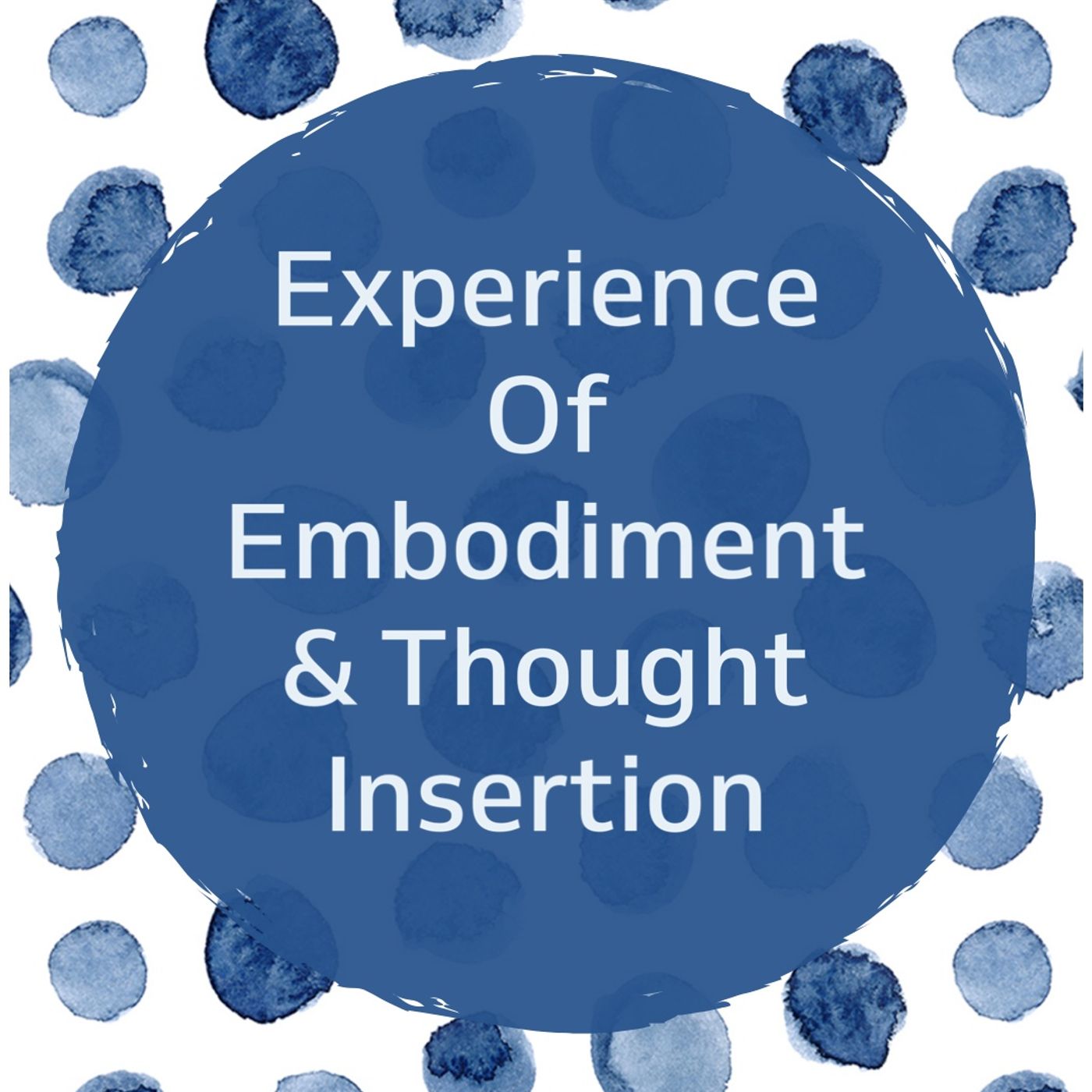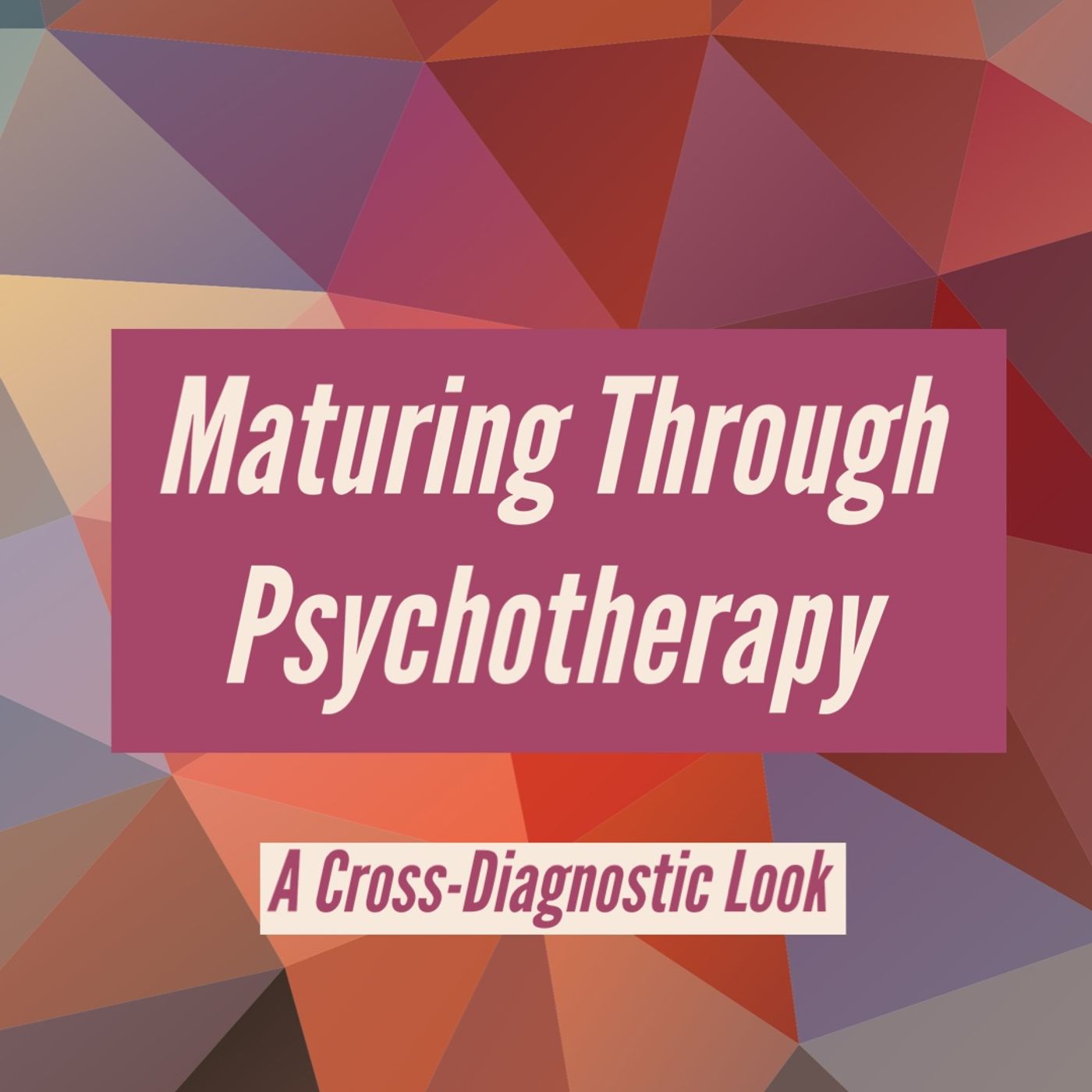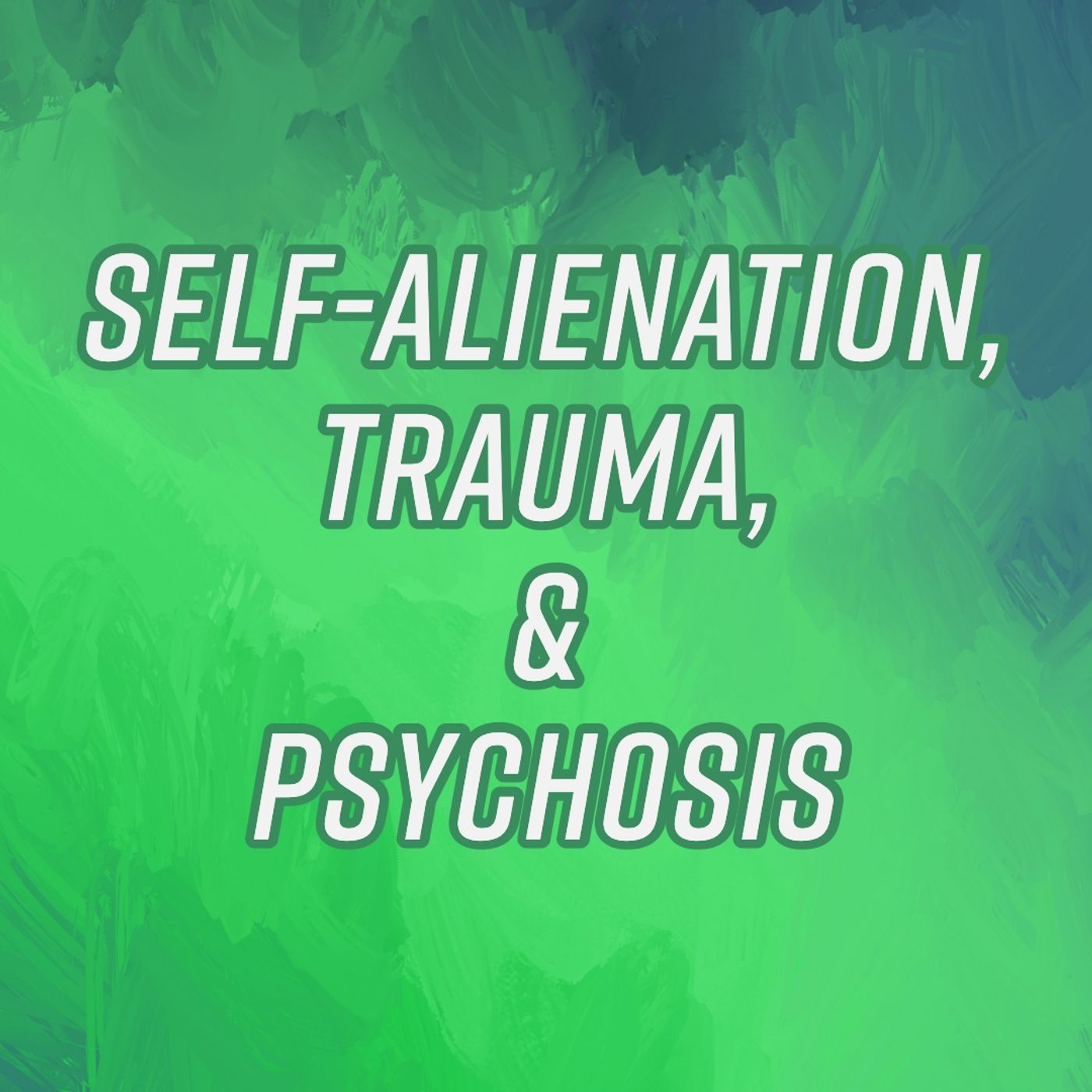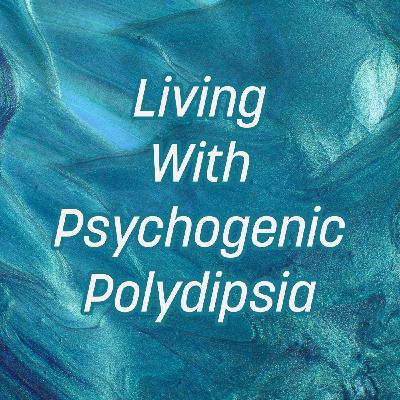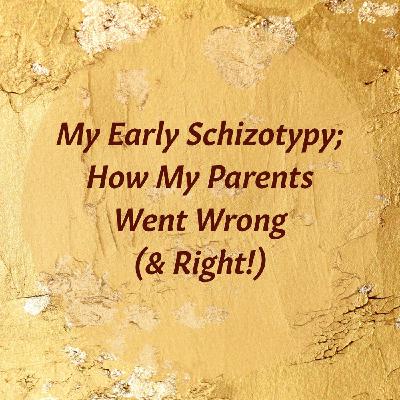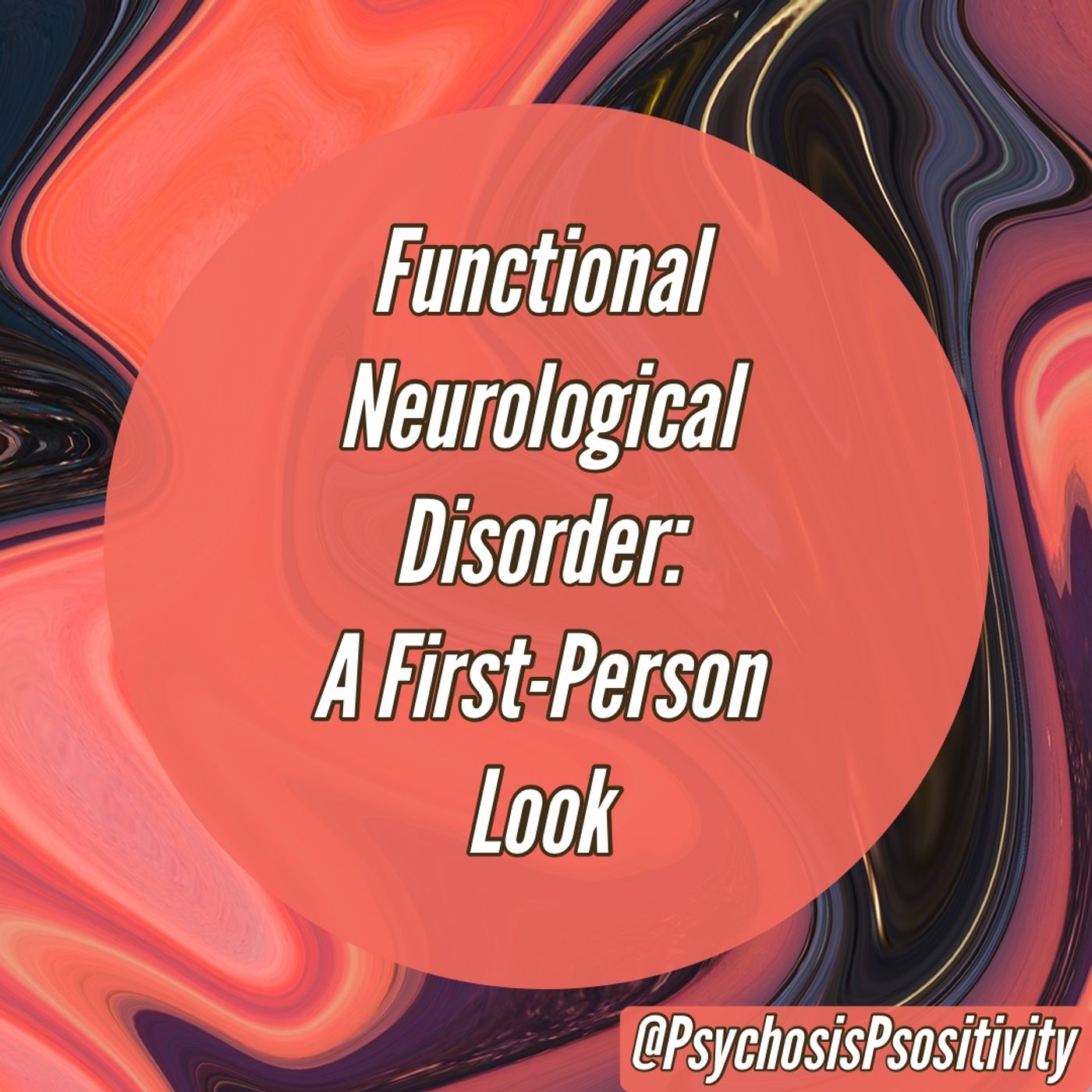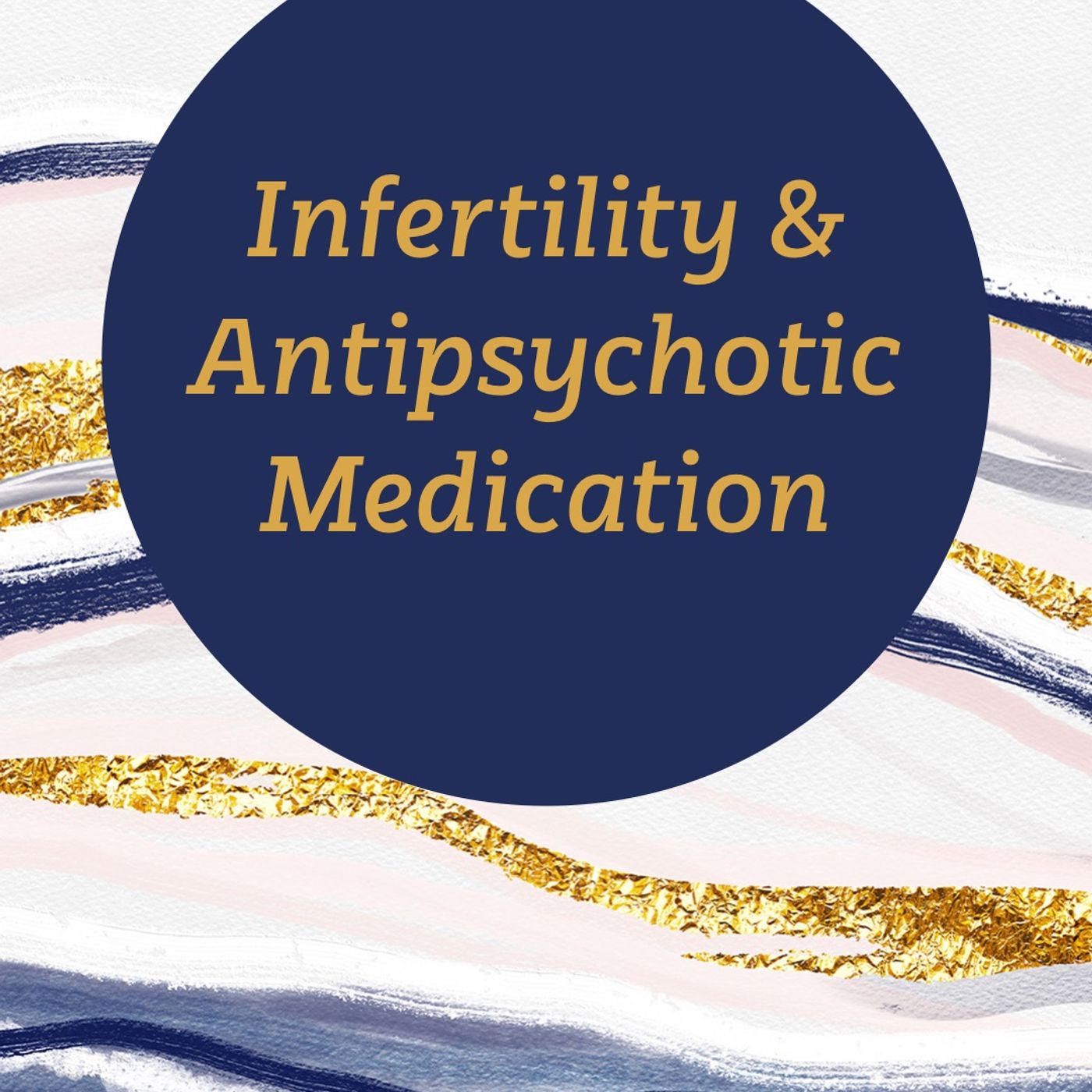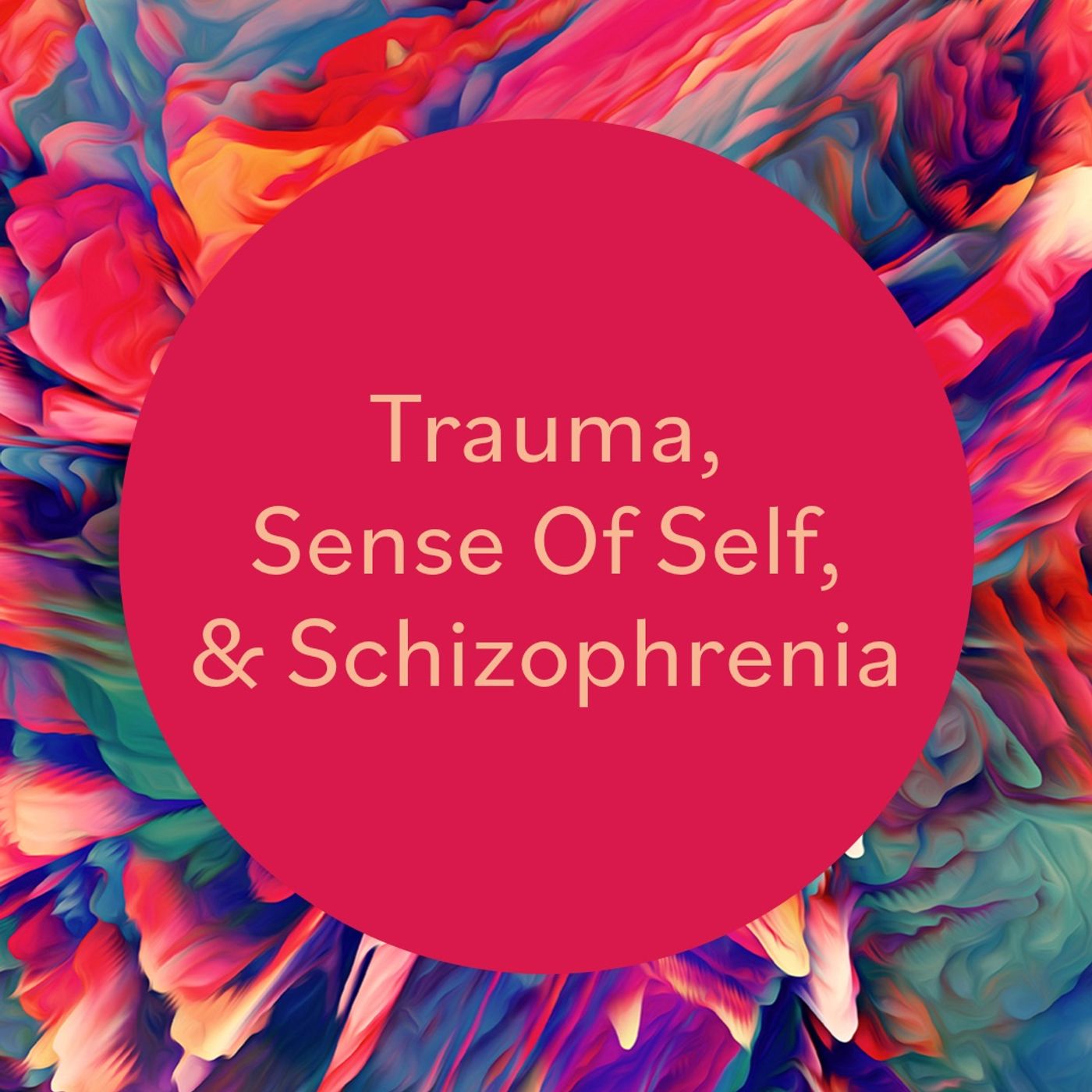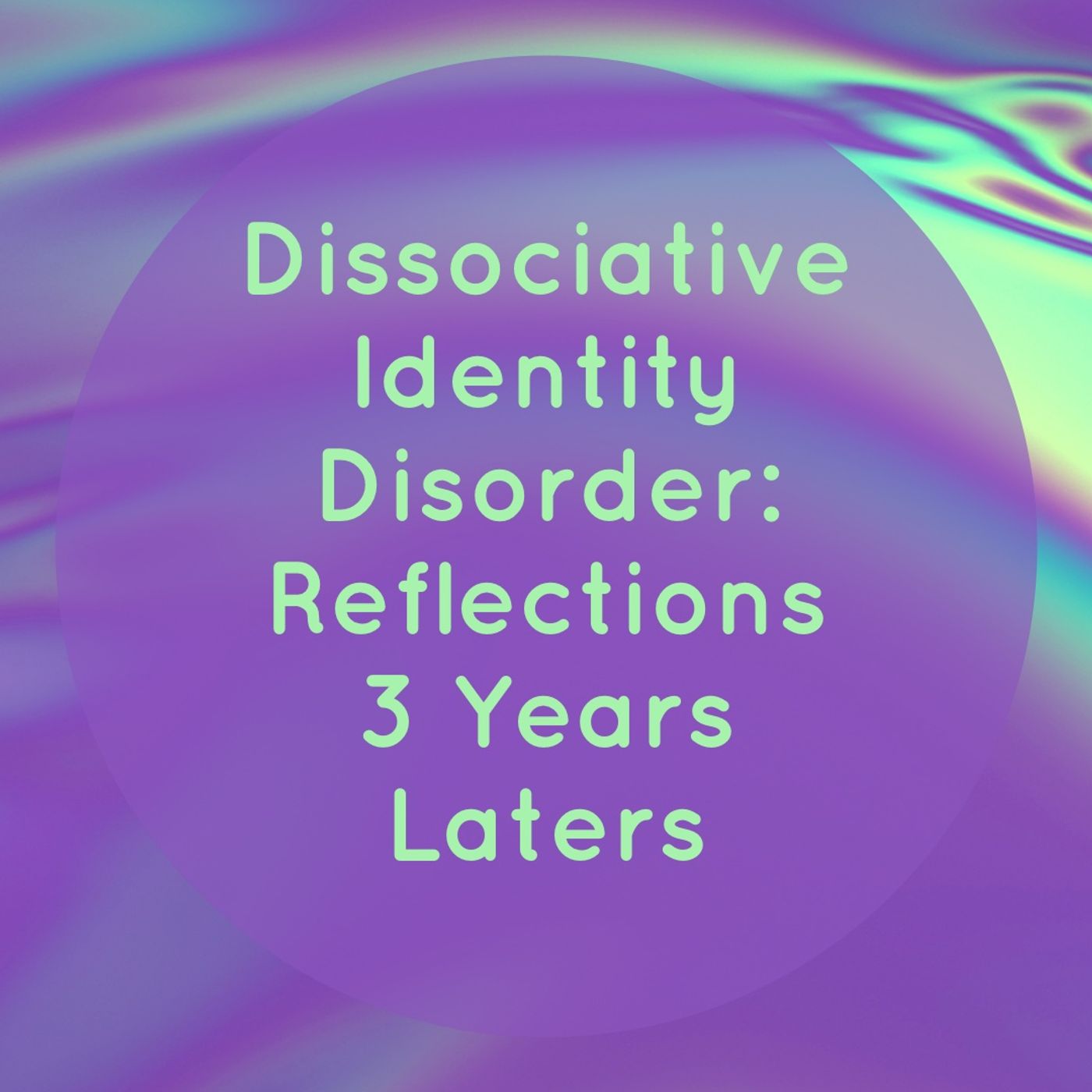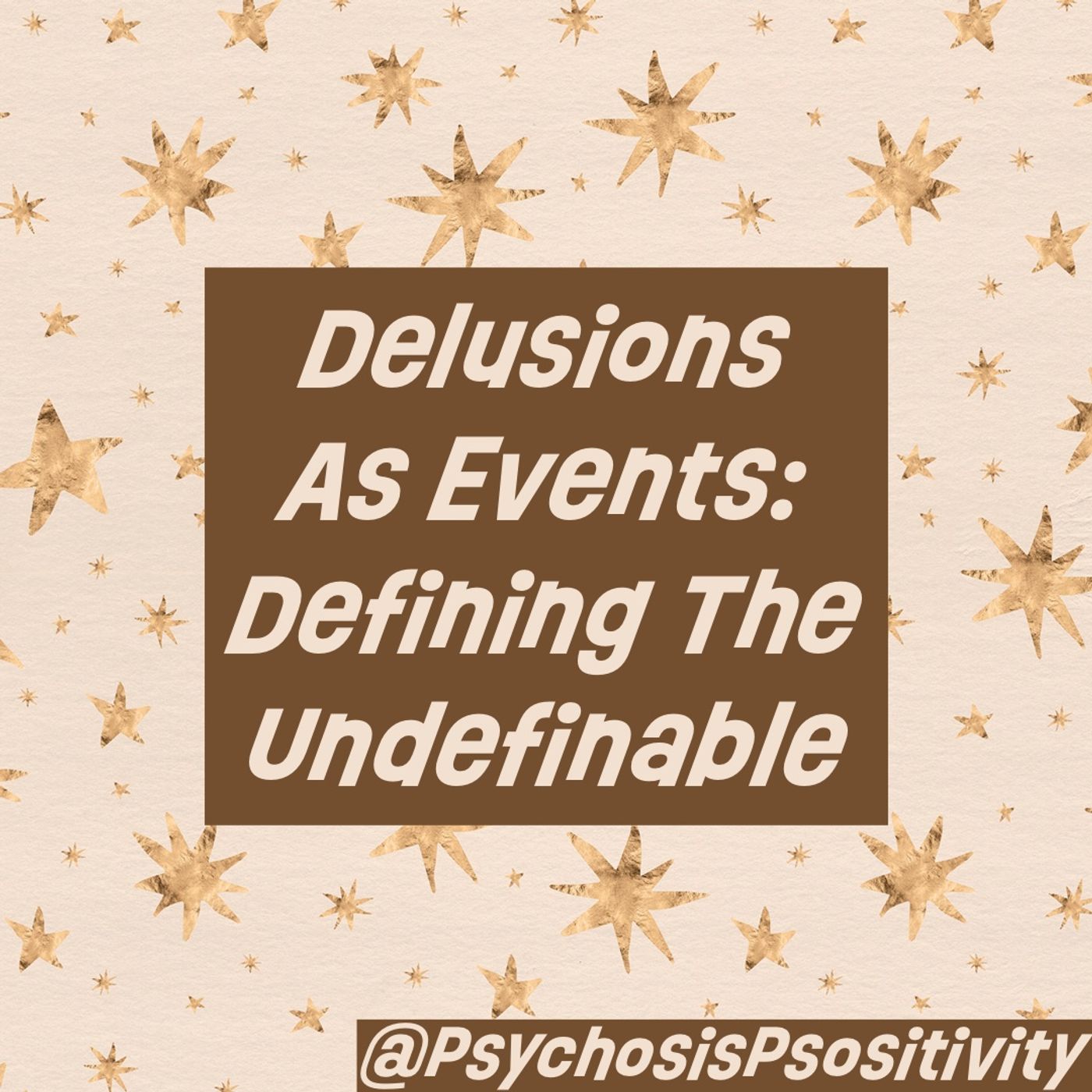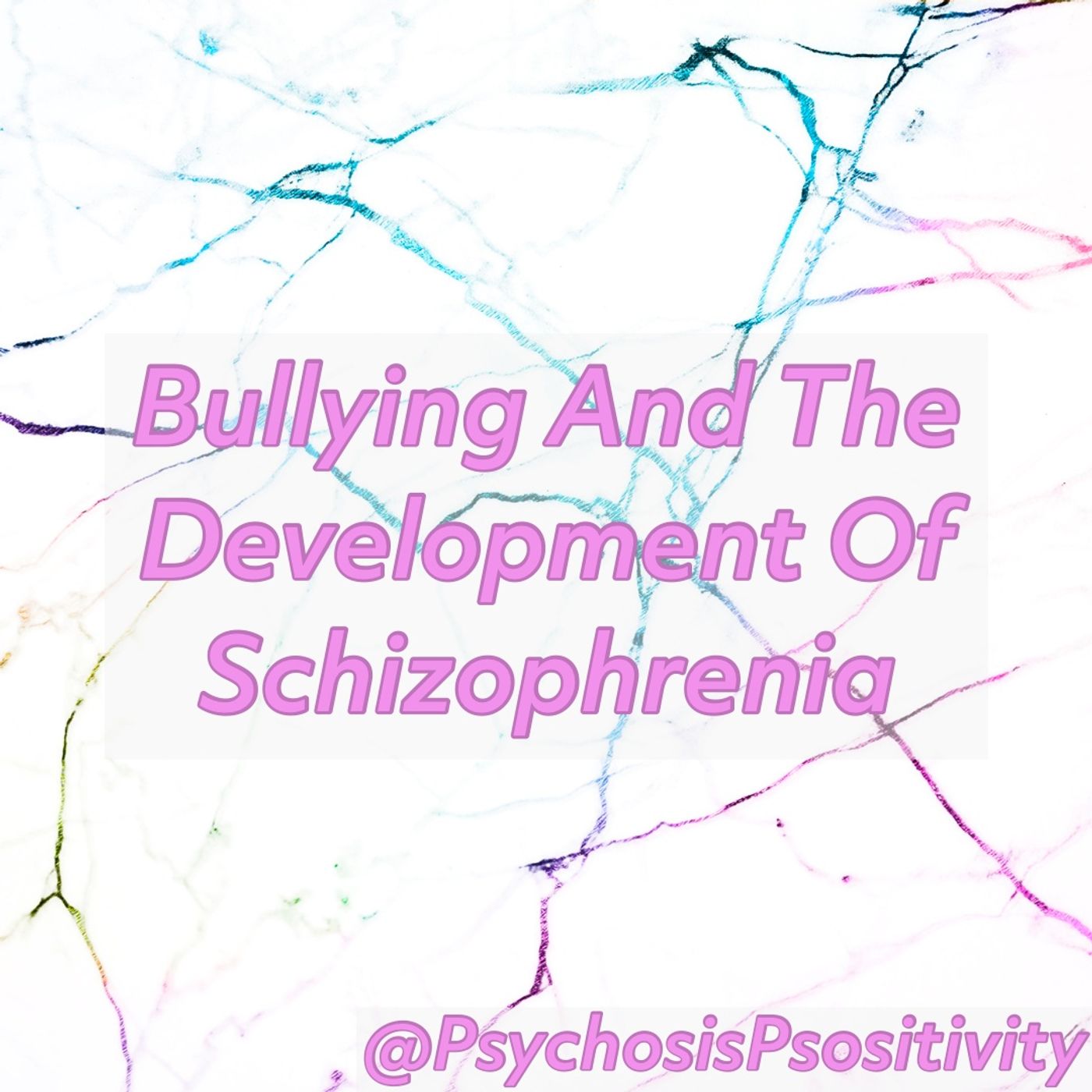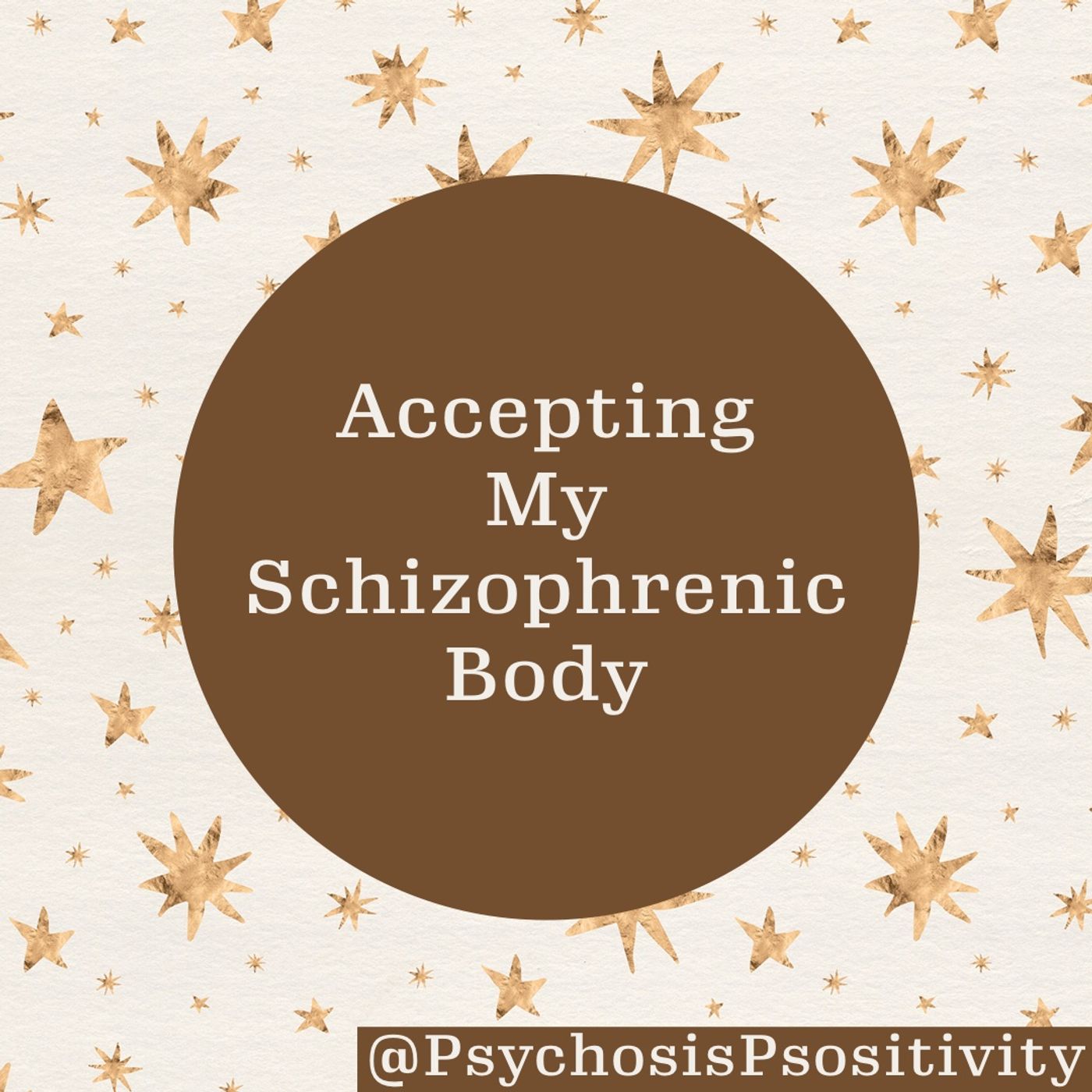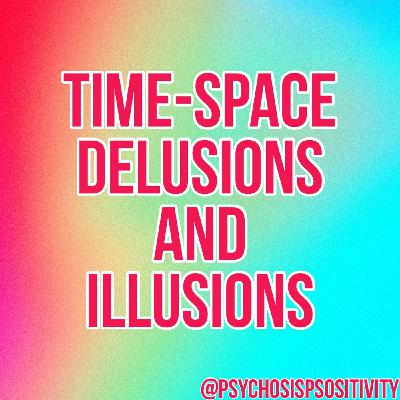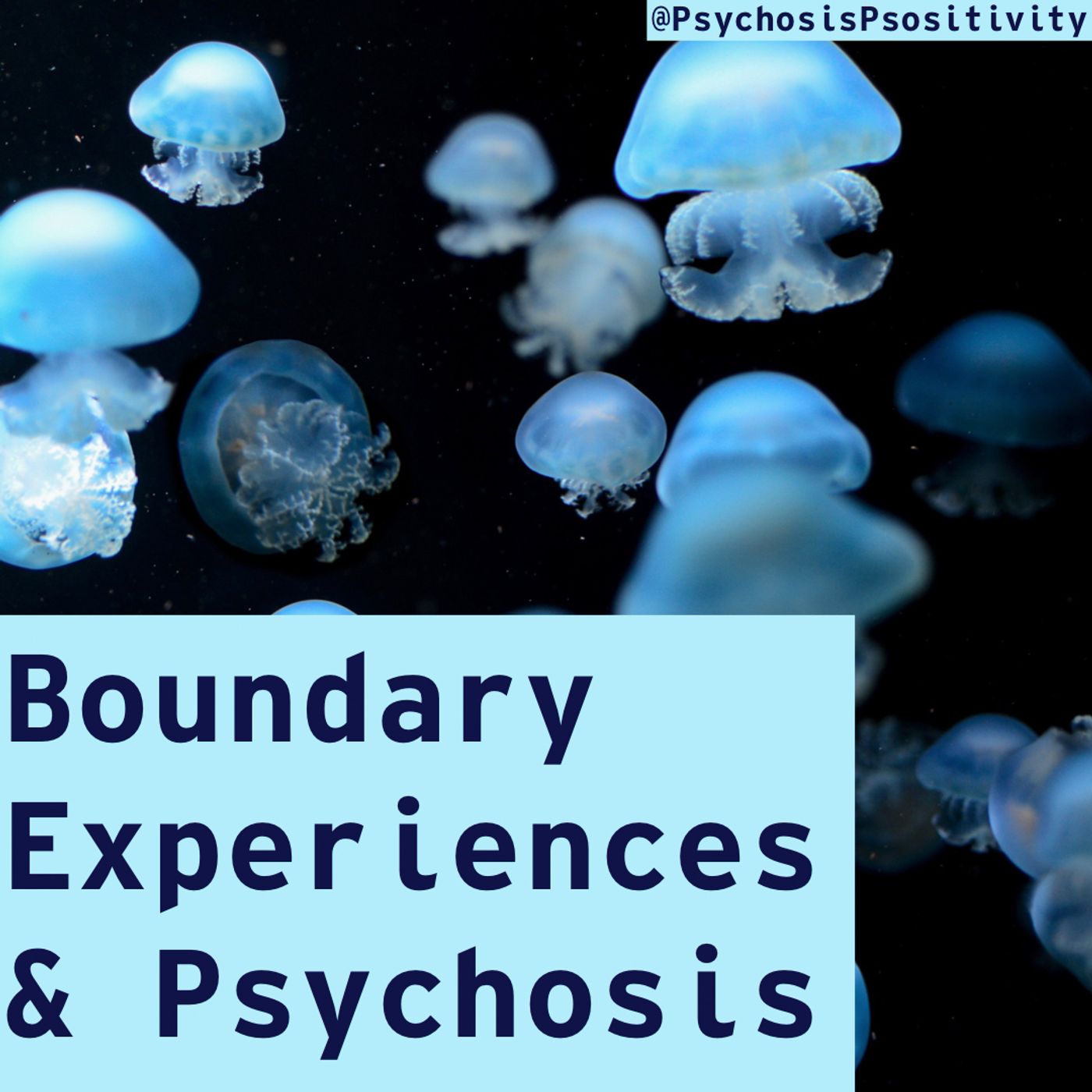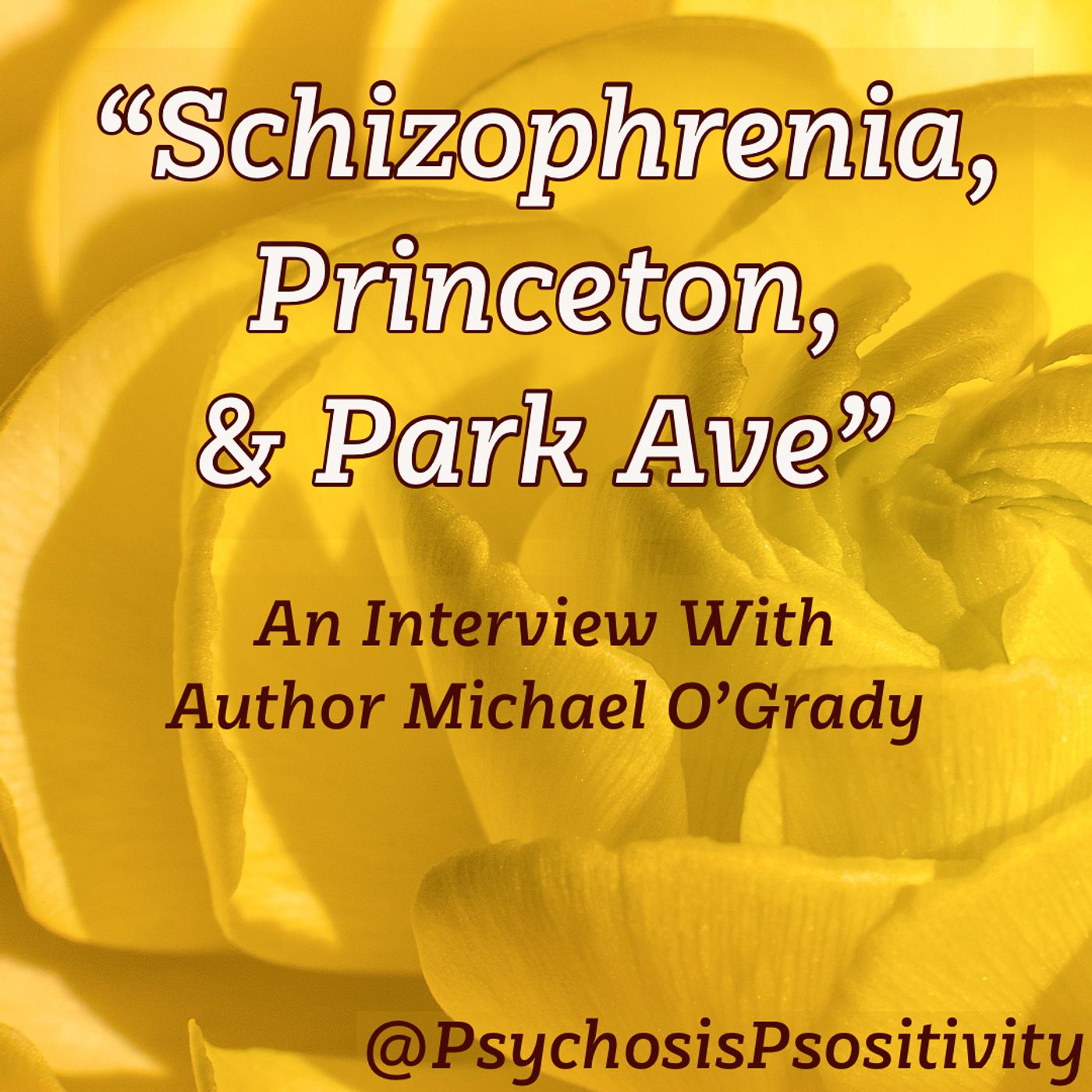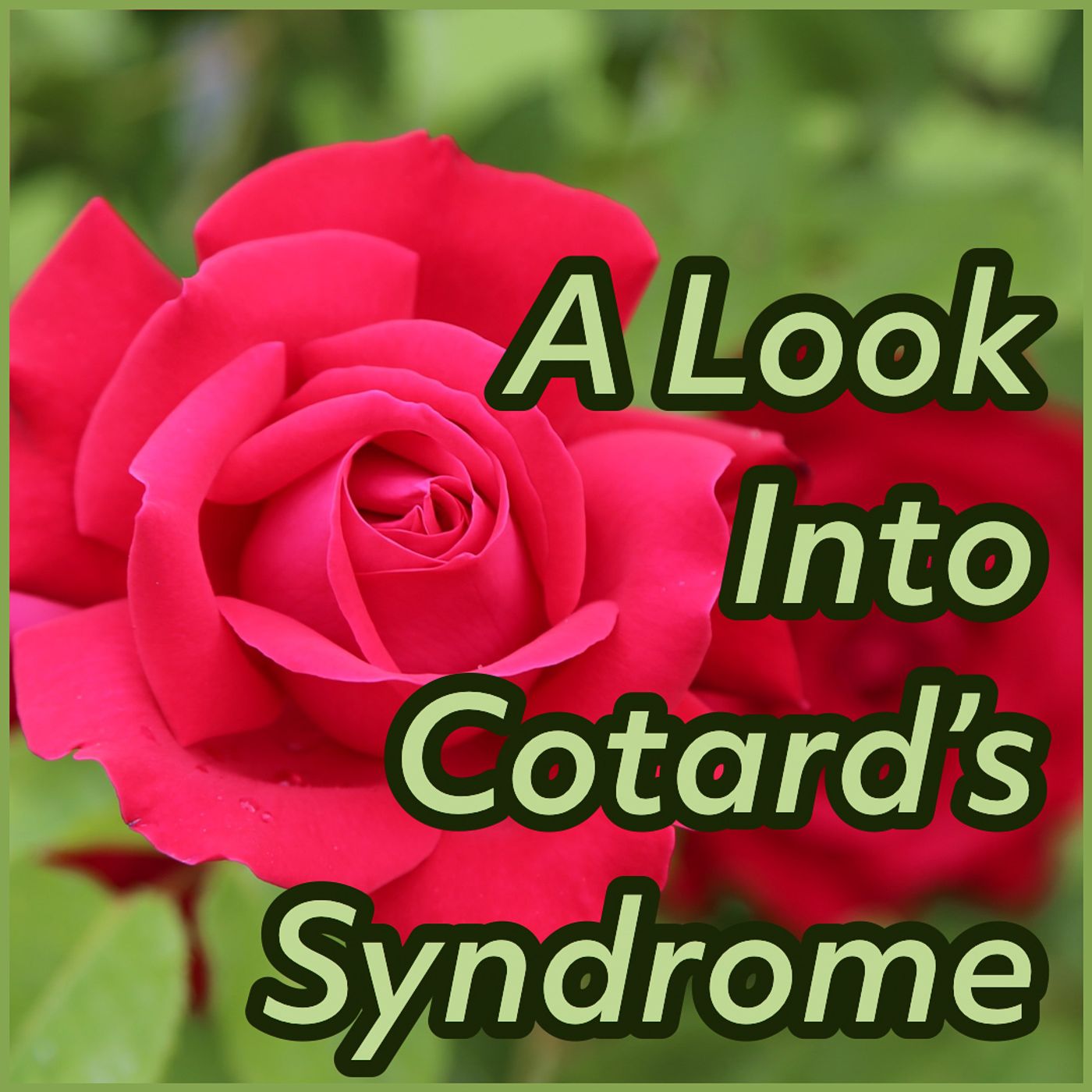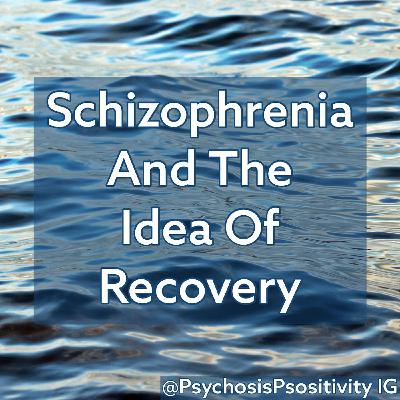Discover PsychosisPsositivity
PsychosisPsositivity

PsychosisPsositivity
Author: Rose Parker
Subscribed: 21Played: 229Subscribe
Share
© Copyright Rose Parker
Description
A podcast about the experience of living with psychosis, specifically schizophrenia. I’ve had schizophrenia for as long as I can remember and it’s been quite a journey, I think we’ll find plenty to talk about! Check out my Instagram @PsychosisPsositivity for daily updates!
63 Episodes
Reverse
Schizophrenia often involves an altered sense of embodiment, an experience In describe here. My experience with altered embodiment in Schizophrenia has been heavily focused on the brain and skull, which led me to think about how this might affect other Symptoms, particularly Thought Insertion and Thought Broadcasting. I explore some of my thoughts on the topic here, I'd love to hear what you think in the Instagram comments for this episode or in a private message!
I've always been interested in the ways different diagnoses relate, and was fasdcinated at how similar the description of developmental remediation was in a book I have been reading for Borderline patients as it was in my experience for DID & Schizophrenia. Personality Disorders & Schizophrenia have interesting areas of overlap & similarity, and here I sharte my reflections on how re-parenting in Schizophrenia is similar to Personality Disorder Therapy when both are using Psychoanalytic elements. Kernberg, O. F. (1984). Severe personality disorders psychotherapeutic strategies. Yale University Press. Perona-Garcelán S, Carrascoso-López F, García-Montes JM, Ductor-Recuerda MJ, López Jiménez AM, Vallina-Fernández O, Pérez-Álvarez M, Gómez-Gómez MT. Dissociative experiences as mediators between childhood trauma and auditory hallucinations. J Trauma Stress. 2012 Jun;25(3):323-9. doi: 10.1002/jts.21693. Epub 2012 May 15. PMID: 22589015.Schultz, H. E., & Hong, V. (2017). Psychosis in Borderline Personality Disorder: How Assessment and Treatment Differs from a Psychotic Disorder. Current Psychiatry, 16(4), 24–29.
We've talked about social alienation & Social Defeat, but what does that do to your relationship to yourself in the context of a Psychotic condition? Feeling alienated from yourself & others is normal for Traumatized people, but how does this manifest in someone with Schizophrenia (and DID, as my case was)? Here I explore some of my thoughts & hypotheses on Self-Alienation in Schizophrenia/Psychosis, and my experiences in Recovery/Stabilization from this state. Further Reading: Bailey, T., Alvarez-Jimenez, M., Garcia-Sanchez, A. M., Hulbert, C., Barlow, E., & Bendall, S. (2018). Childhood Trauma Is Associated With Severity of Hallucinations and Delusions in Psychotic Disorders: A Systematic Review and Meta-Analysis. Schizophrenia bulletin, 44(5), 1111–1122. https://doi.org/10.1093/schbul/sbx161Davis, J., Eyre, H., Jacka, F. N., Dodd, S., Dean, O., McEwen, S., Debnath, M., McGrath, J., Maes, M., Amminger, P., McGorry, P. D., Pantelis, C., & Berk, M. (2016). A review of vulnerability and risks for schizophrenia: Beyond the two hit hypothesis. Neuroscience and biobehavioral reviews, 65, 185–194. https://doi.org/10.1016/j.neubiorev.2016.03.017Selten, J. P., van der Ven, E., Rutten, B. P., & Cantor-Graae, E. (2013). The social defeat hypothesis of schizophrenia: an update. Schizophrenia bulletin, 39(6), 1180–1186. https://doi.org/10.1093/schbul/sbt134
Polydispia is a rarely-discussed symptom of Schizophrenia, but it is incredibly intrsuive to live with. Polydipsia is the experience of excessive thirst and craving for water, even to the point of physical injury. I have experienced Polydipsia from a young age and it has been a struggle for me. Here are some of my reflections on the experience.
I used to not be an animal person, but since I got my Parakeets (Budgies, Birdies) last Fall I've found myself falling in love with these little happy fluffballs. My Budgies came to me sick and underdeveloped, and out time together has been a journey of mutual healing and trust-building. While some people think Schizophrenics shouldn't have pets, this isn't true; my Budgies help me manage Negative Symptoms like Avolition and Anhedonia, in addition to helping with my loneliness and withdrawal. We are not dangerous to our pets and having pets can be very helpful to our wellbeing.
I thought it might be useful for me to talk about some of my early childhood experiences. Early onset Schizophrenia/Schizotypy is considered rare, but in my experience working with the Psychosis Community I believe it is actually wildly underdiagnosed. This podcast episode is purely informational, but I hope it can help shed some clarity on either your own experiences or those of a loved one. I'm happy to talk on my Instagram if you have any specific questions.
Functional Neurological Disorder (FND), formerly Conversion Disorder, is a Somatic Symptom Disorder that causes psychogenic symptoms that would typically be caused by conditions labeled Neurological. I struggled with FND for about a year and a half, from early 2017 to late 2018, and the experience left an impression. Having FND severely stigmatized me and added an excruciating layer on to my already misunderstood Schizophrenia. Recording this hard podcast was very hard, and my emotions are evident in my Speech symptoms (just a heads up). While the idea of another FND episode looms in preconscious regularly, remembering just how awful the active illness was was a little much.
Antipsychotic medications are known to cause infertility in a subset of patients, especially patients assigned female. What is it like to be one of these patients? How do you find out about this side effect, and what is it actually like to through. In this podcast, I discuss my experience with Antipsychotic-indiced infertility, as well as the social atmosphere around Schizophrenia and reproductive rights.Link to essay: https://www.psychosispsositivity.com/blog/reproductive-ethics-and-antipsychotic-medication
We all know that trauma can be a cause of Psychosis, but what does chronci/developmental trauma do to someone with Schizophrenia in a practical sense? What is it actually like to live with? How can it be approached by clinicians? In this episode, I share my experience with chronic trauma/PTSD and Schizophrenia, share how it was differen than what people normally think of PTSD, and what was done right in my psychotherapy.
I recovered from Dissociative Identity Disorder (DID) over three years ago now--what are my thoughts? How has it affected me? What emotions does the the story bring up? How did this diagnosis relate to my Schizophrenia stabilization? While it was a harrowing journey at times, I am overall grateful for the experience and I believe it was formative for my current path.
Delusions are amophorus in character, difficult to pin down and elusive. I've spent much of my career talking about them, but I feel I have not made enough that defines/explains them for those who have not experienced them first hand. I believe there is a need for this, because I continue to come across misinterpretations of the Delusional experience in worm by non-Psychotic authors. A follow-up to my essay "On the Philosophy of Delusions", here are some thoughts on Delusions as Events. Let me know what you think in the Instagram comments.
Do you like to read? I certainly did, until the ability slowly began slipping away from me. I lost the ability to read over a number of years, but regained it relatively quickly. The cognitive symptoms of Schizophrenia are no joke, but receive relatively little awareness. Here, I explain. my journey with the most severe cognitive symptom I have experienced and how I recovered from it.
The podcast is back from break for my move!We all know that bullying can leave a mark on the psyche, but what happens when a child with Schizotypy gets bullied? Well, I believe that the severe bullying I faced in grade school and part of high school was a factor in the development of my chronic Schizophrenia. Like any trauma, bullying shapes the brain in its own image, and in my case I believe that lead to Paranoid ideation and possibly other Schizophrenic symptoms. Join me on this exploration of the past and ideas of Schizophrenia pathogenesis.TW: Discussion of suicidal ideation, sexual harassment, and eating disorders
Schizophrenia is a whole brain condition and also affects the neuroendocrine system, and this is not even to mention the far-reaching effects of psychotropic mendication. It is hard to makle peace with your body when it is so stigmatized and seems to be determined to do whart you don't want it to do. Here, I describe my thought process in how I made peace with my Schizophrenic body, an action that has given me signiicant mental freedom and relief.
Can you remember who the President is? For me it might take a few tries, just like this espisode did! Sense of time and space can easily be distorted in Schizophrenia, either directly by delusion or by other aspects of the neurodivergence. This is not a subject I have seen much content on, but it is something that interests me and I would love to hear your thoughts back on Instagram.
What is a Boundary Experience, and how do they relate to Schiszophrenia? I explain that here, describing the variety of ways Schizophrenia can create what are called Boundary Experiences. These experiences put you on the edge of life, and I hypothesize might play a role in the mechanism for Psychosis. Join me in this brief philosophical exploration of the Schizophrenic mind. Book Details: "The Gift of Therapy: an Open Letter to the Next Generation of Therapists and their Patients" Yalom ID, 2012, Audible Audiobook.
This is a first for PsychosisPsositivity as we welcome our first podcast guest! Michael O'Grady developed Schizophrenia at 15 but managed to graduated from Princeton and earn an MBA, have a distinguished career in mental health and business, and raise a family. His story shows that a person can have chronic Schizophrenia and still live a successful and fulfilling life. Schizophrenic people can live good lives, but we must be given the opportunity.Please note the audio got a bit warped when we were recording, so my end became unintelligible for most of the episode. I've recorded over to fill in the gaps, but it might be a little weird. Mr O'Grady can be heard, and he is the star this time so I decided to roll with it.
Cotard's Syndrome is defined as "any one of a series of delusions that range from a belief that one has lost organs, blood, or body parts to insisting that one has lost one’s soul or is dead" (Ruminjo & Mekinulov, 2008). I experienced Cotard's symptoms fof various kinds for about a decade, and I explore these delusions and their meaning in this episode. Citation: Ruminjo, A., & Mekinulov, B. (2008). A Case Report of Cotard's Syndrome. Psychiatry (Edgmont (Pa. : Township)), 5(6), 28–29.
This one gets personal as I discuss my feelings towards the concepts of recovery from Schizophrenia. I personally do not see my journey as being on a path to "recovery", but rather as a long adaptation to an unusual life that I see as a gift. I found treatment most helpful when it worked with my brain rather than trying to make the Schizophrenia go away. I sometimes found my thoughts difficult to articulate, so expect a few pauses.
I've talked about my color and light hallucinations on my pages before, but I thought it was about time I go really in depth as to what the experience is like. The colors and light are such a major part of my everyday experience, but they are so far from the ordinary I found it difficult to put them into words. I hope that my explanation is interesting/useful, thanks for joining me again!


